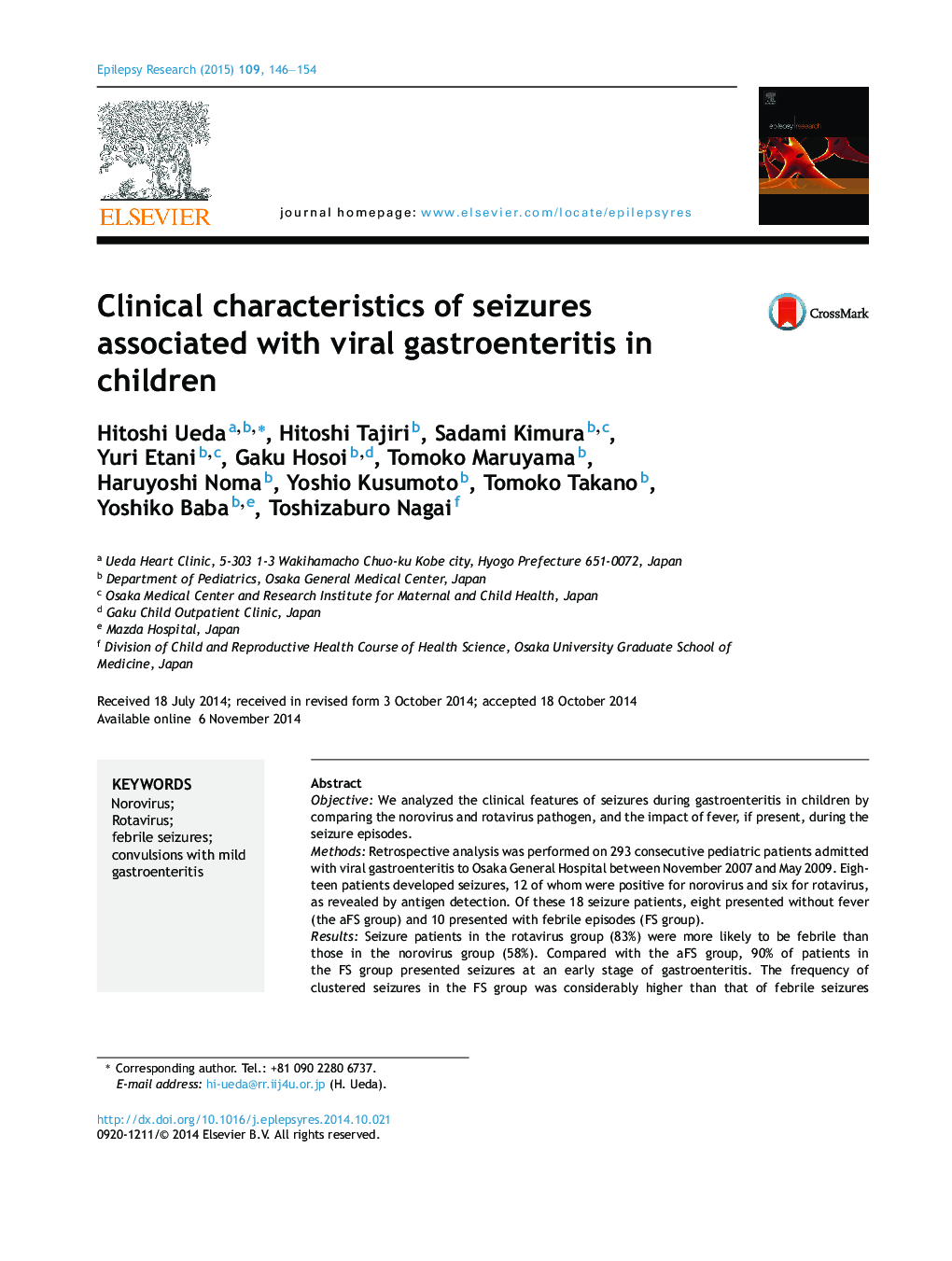| Article ID | Journal | Published Year | Pages | File Type |
|---|---|---|---|---|
| 6015646 | Epilepsy Research | 2015 | 9 Pages |
â¢The causative pathogen affected the frequency of febrile episodes.â¢The presence of fever did not affect the features of seizures in gastroenteritis.â¢The features of febrile seizures in gastroenteritis may resemble those of CwG.
ObjectiveWe analyzed the clinical features of seizures during gastroenteritis in children by comparing the norovirus and rotavirus pathogen, and the impact of fever, if present, during the seizure episodes.MethodsRetrospective analysis was performed on 293 consecutive pediatric patients admitted with viral gastroenteritis to Osaka General Hospital between November 2007 and May 2009. Eighteen patients developed seizures, 12 of whom were positive for norovirus and six for rotavirus, as revealed by antigen detection. Of these 18 seizure patients, eight presented without fever (the aFS group) and 10 presented with febrile episodes (FS group).ResultsSeizure patients in the rotavirus group (83%) were more likely to be febrile than those in the norovirus group (58%). Compared with the aFS group, 90% of patients in the FS group presented seizures at an early stage of gastroenteritis. The frequency of clustered seizures in the FS group was considerably higher than that of febrile seizures in general and was also as high as that of “convulsions with mild gastroenteritis (CwG)”. All seizure patients, whether febrile or afebrile, presented with generalized tonic clonic seizures (GTCS), complex partial seizures (CPS), or both. Diazepam (DZP) was less effective and carbamazepine (CBZ) was completely effective for the cessation of seizures in the FS group, similar to the drug response observed in CwG.ConclusionsThe causative pathogen (norovirus or rotavirus) affected the frequency of febrile episodes during gastroenteritis, but fever had little effect on the clinical features of seizures. However, seizures occurred earlier during gastroenteritis in the FS group. On the whole, the clinical features of febrile seizures during viral gastroenteritis may closely resemble those of “convulsions with mild gastroenteritis” (CwG) than those of febrile seizures in general with respect to the frequency of clustered seizures and the antiepileptic drug responses and may have a pathogenic mechanism distinct from those of febrile seizures due to other causes.
